
Developer: Erik Rempen
Publisher: Green Man Gaming Publishing
Platform: PC
Tested on: PC
Kainga – Preview
Kainga is a city builder that reminds us of the Populous series, with some roguelite goodness sprinkled on top. It was made solely by Erik Rempen and was funded through a Kickstarter project. We’re curious to see if these two genres are a winning combination, or if the roguelite elements were added forcefully, since this appears to be the most popular genre nowadays when it comes to indie games.
Right off the bat, it becomes clear that the developer has opted for a very low-budget old-school art style and animation, possibly to harken back to the old Populous games, or perhaps to cut costs and development time. In the main menu, you control a Thinker, which is the town elder. You are able to walk around inside a hut and take a look at a list of buildings and other Thinkers that you have or have not yet unlocked, before you descend onto your chosen map and challenge.
Challenge? That’s right. Each round in Kainga is played out in about thirty minutes to an hour, in which you select a randomized challenge and map. A challenge is basically the map’s victory condition and can come in the form of migration, building landmarks, rescue vessels, or arena combat. All of which are tied to an estimated play length, which is pretty convenient for limited play sessions. This is the roguelite part of the game, and it prevents the player from becoming too accustomed to a favorable build order, since each new map might not have the resources or buildings needed to do what you want to do. This can also cause the player to brick the round, especially when you choose to research a building that you’re unable to build because of missing resources. Adapting to the circumstances at hand is the key to success.
At the start of each round, you are given a handful of villagers and your Thinker, as you scramble to build your campfire and set up your housing and food production line. We say scramble, because the opponents, which are the Thinkers you didn’t select on the main menu, are doing the exact same thing. During the game, they will try to make demands, that you can choose to ignore, but doing so will cause them to attack your village. Losing either your Thinker or all of your villagers means the game is over, and you’re taken back to the main menu.
Every time you select a building category, you’re met with three different random options for buildings to research. These selections will largely dictate how your village will develop. At times during the game, there will be random disasters happening, such as your houses catching fire and burning down. We found this to be somewhat annoying, as there is enough randomization already and there is no way to turn these disasters off.
There are also types of fantasy animals roaming around the map, some of which you are able to tame and use to your advantage, even going so far as to place buildings on top of them. This is a pretty cool touch and it adds even more of a strategic element to the game.
As mentioned earlier, Kainga’s graphics are extremely basic. The animations are quite rudimentary and the textures are very low in resolution. Every villager in the game is drawn in 2D, while the buildings and environment are 3D. This causes somewhat of a disconnected look between moving objects and scenery. This isn’t helped by the fact that you’re able to pan and rotate the camera around, exposing the disjointed look. We feel that a fixed camera would have been more positive in this case.
The music and sounds are what you would expect from a game focused on ancient tribes and village-building. Chirping birds and drums and flutes are the mainstays here, but nothing really stands out.
Conclusion
As Kainga is a game in the roguelite genre, there is no actual story or campaign available to play through. Couple this with the short rounds, unappealing look and the fact that everything is randomized, the game had a hard time growing on us. Having said that, Kainga is not a bad game per se. The roguelite mechanics are well executed and some of the gameplay elements put a smile on our face (mostly those involving the animals). If you’re really into slightly off-beat city builders, as well as roguelites, Kainga could be next on your list.
Kainga - Preview,
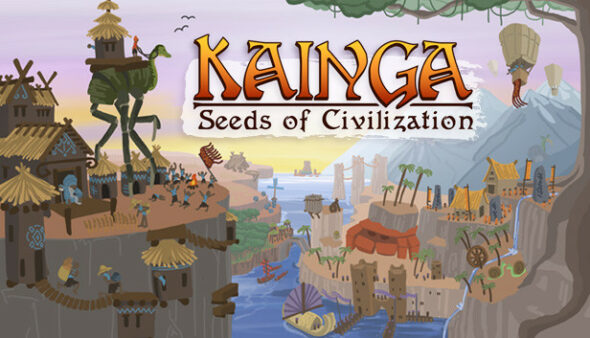
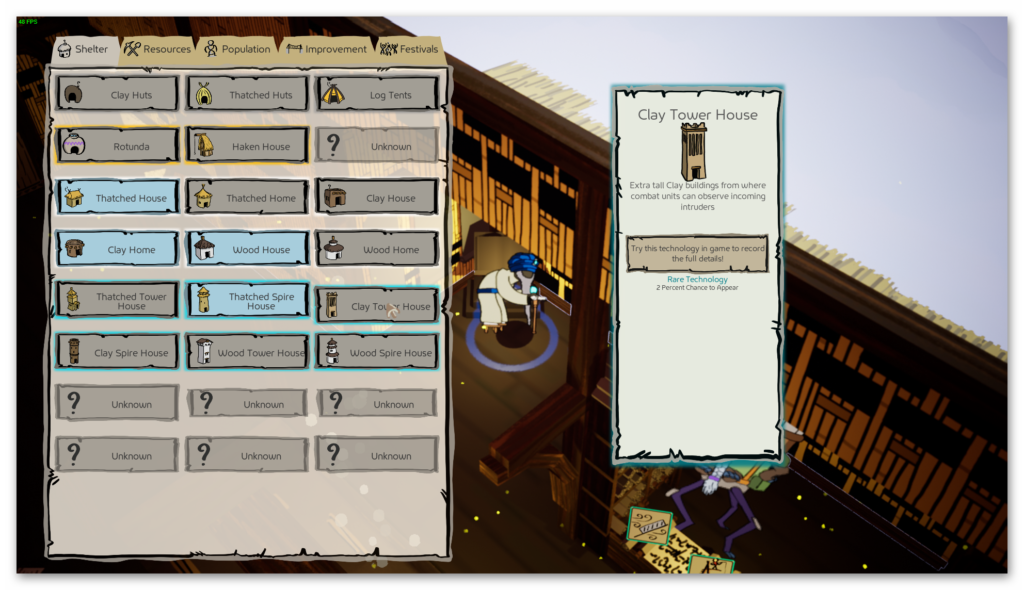
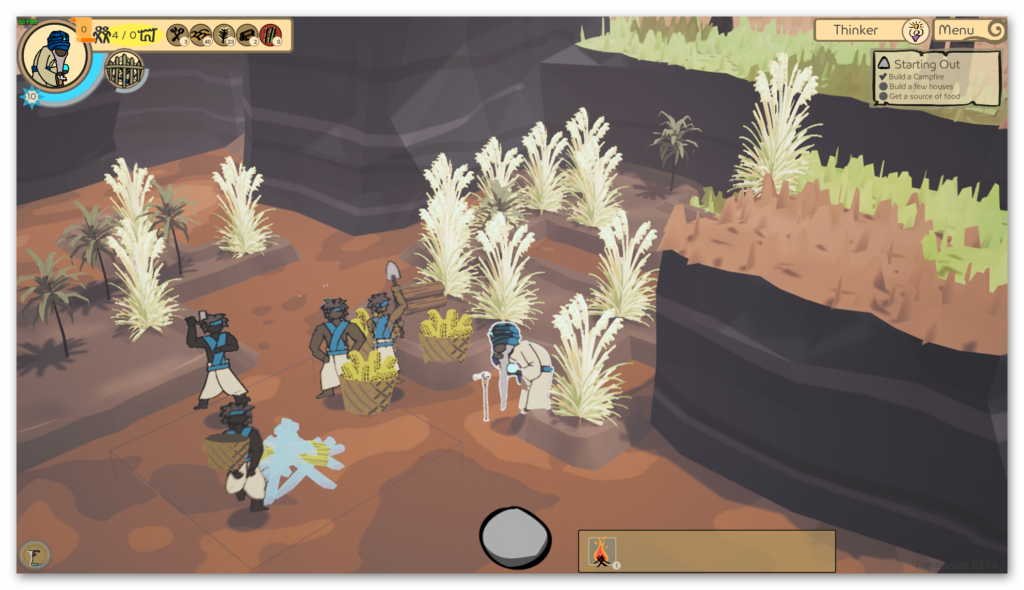
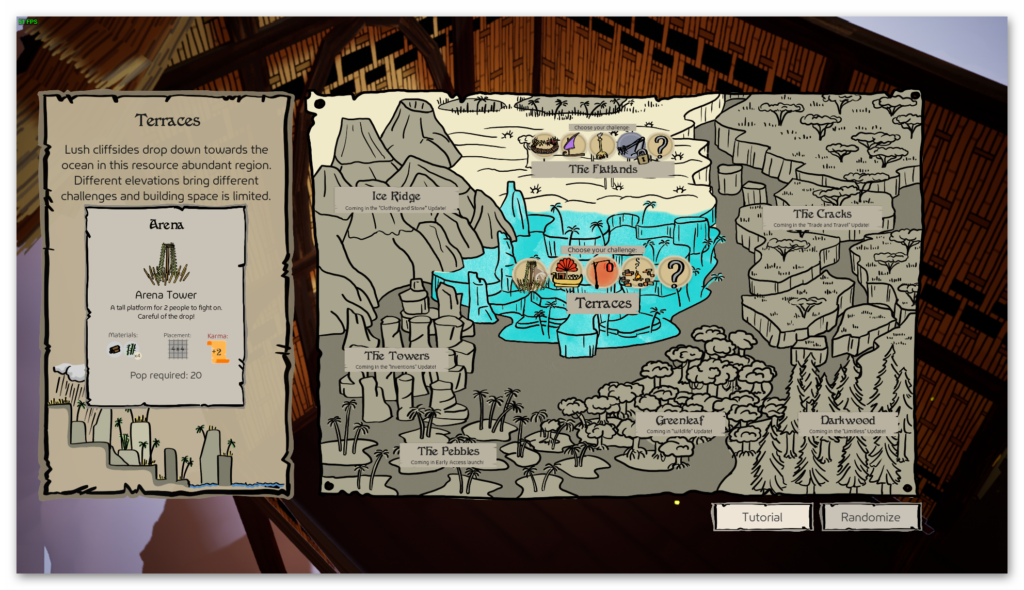
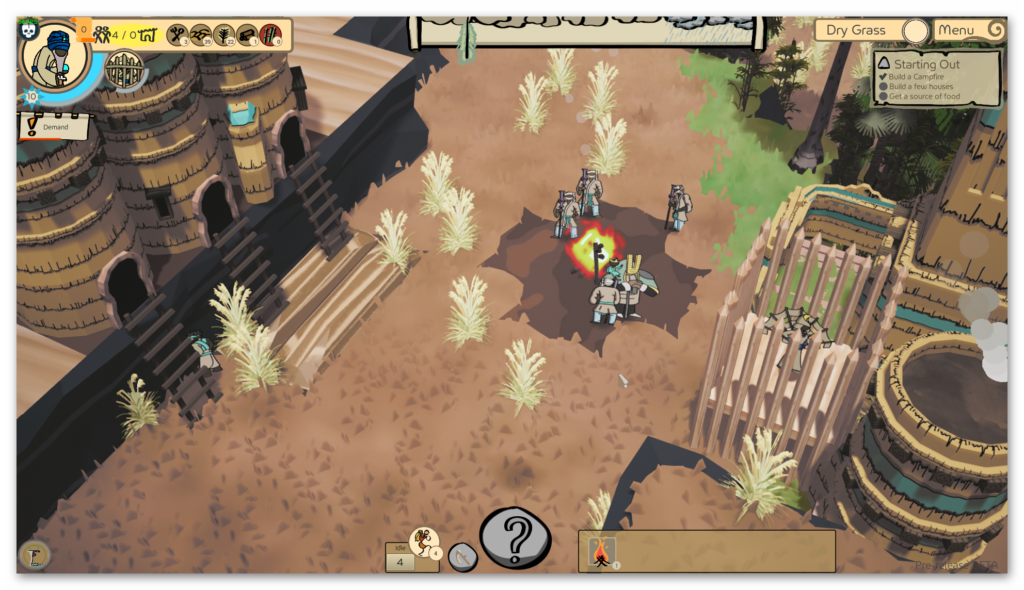


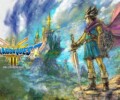

No Comments